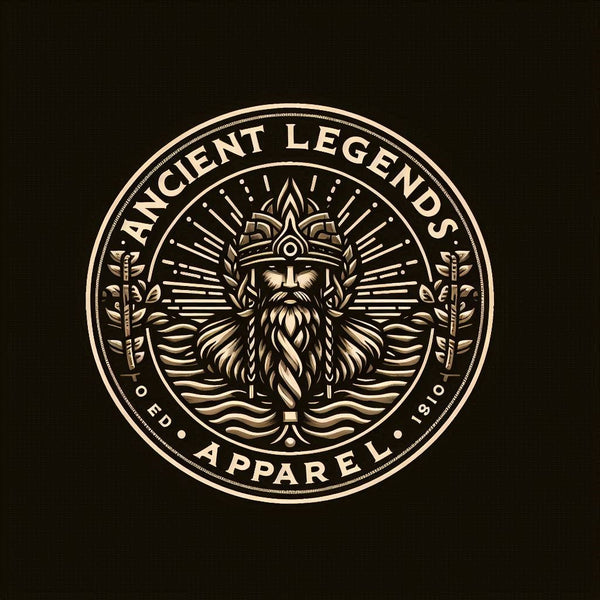How Heroes and Quests Influenced Modern Fantasy
Karl FShare
INTRODUCTION
From the daring tales of the Iliad, to Beowulf's monstrous adversaries, to the tumultuous journey across the Ocean Sea by Odysseus — the hero's journey has been woven into the tapestry of storytelling since the first tales were passed down through oral tradition. These ancient stories, rife with trials and tribulations of men and demigods, seeped with symbolism and cultural morality lessons, have greatly influenced modern fantasy. Today's acclaimed works, from Tolkien's expansive Middle Earth in The Lord of the Rings to George R. R. Martin’s Game of Thrones series, have their roots in the time-honored tradition of the valiant hero embarking on a perilous quest.
ORIGIN AND CULTURAL CONTEXT
Our fascination with this narrative archetype, known as the Hero's Journey, or the Monomyth, has its origins in the ancient world. Anthropologists and mythologists, most famously Joseph Campbell in his book 'The Hero with a Thousand Faces,' have traced this pattern across cultures and eras. From Ancient Greece and Africa to Native American and Celtic cultures, elements of the Hero's Journey persist, prevalent and enduring. The hero, often of divine heritage, is called to adventure, faces and overcomes trials, sometimes dies and is reborn, achieves his objective, and returns, transformed.
THE LEGEND OR STORY
A quintessential portrayal of the hero's journey is Homer's Odyssey. Odysseus, a Greek hero from the Trojan War, embarks on a decade-long voyage home to Ithaca, where his wife and son await him. Odysseus encounters numerous trials throughout his journey, including close encounters with giant Cyclopes, alluring Sirens, and vengeful gods, particularly Poseidon. Also, he descends into the Underworld, experiences rebirth, and returns a transformed man, more humble and astute. The Odyssey remains one of the most influential narratives, providing a template for many other quests that would follow, including Dante's Inferno and John Milton's Paradise Lost.
INTERPRETATIONS AND SYMBOLISM
Odysseus’ trials symbolized human virtues and vices, and his journey reflected the human condition: battling internal and external obstacles, persisting against odds, learning from failure, and, finally, evolving. His descent to the Underworld represented personal transformation and spiritual rebirth, while the gods' involvement denoted the ancient Greeks' belief in divine intervention. Beyond its thrilling narrative, the Odyssey offered a spiritual roadmap to illumination and wisdom, embodying the human desire for growth, understanding, and meaning.
COMPARISONS IN OTHER CULTURES
The Hero's Journey' is not exclusive to Greek mythology. It is found in numerous other cultures' folklore and epic poetry. For example, in the ancient Indian epic The Ramayana, Prince Rama embarks on a quest to rescue his wife, Sita, from the demon king Ravana. His journey is fraught with seemingly insurmountable obstacles and moral dilemmas, testing his perseverance, courage, and righteousness. Rama's quest, much like Odysseus', symbolizes the triumph of good over evil and the human ability to endure adversity.
MODERN REFERENCES AND POP CULTURE
Modern fantasy owes much to the classical hero’s quest. J.R.R. Tolkien's The Hobbit follows Bilbo Baggins' unexpected adventure with dwarves and dragons, molded by the Hero's Journey. Similarly, the Harry Potter series, Chronicles of Narnia, and The Game of Thrones embody traits from ancient quest narratives, each using classical archetypes through unique lenses—whether it's a child wizard, innocent children called to save a magical land, or morally ambiguous men and women embroiled in a game of power.
LEGACY AND LASTING MYSTERIES
No mystery endures more than why the template of the 'Hero's Journey' so deeply resonates with us. Perhaps it harkens back to our primordial self, the necessity of overcoming adversity for survival, replicated in our neural pathways. Or maybe it exists as an intrinsic aspiration, the quest to transcend, emerge victorious, and return transformed.
In a world where mindless distractions abound, these narratives pull us back, remind us of the timeless, universal human desire to traverse the landscape of our personal narratives, to face our dragons, and to return bearing the wisdom of our trials. Thus, the hero's journey continues to permeate modern fantasy, a testament to our collective past, humanity's shared narrative, and provides a wellspring from which future writers will undoubtedly draw.
